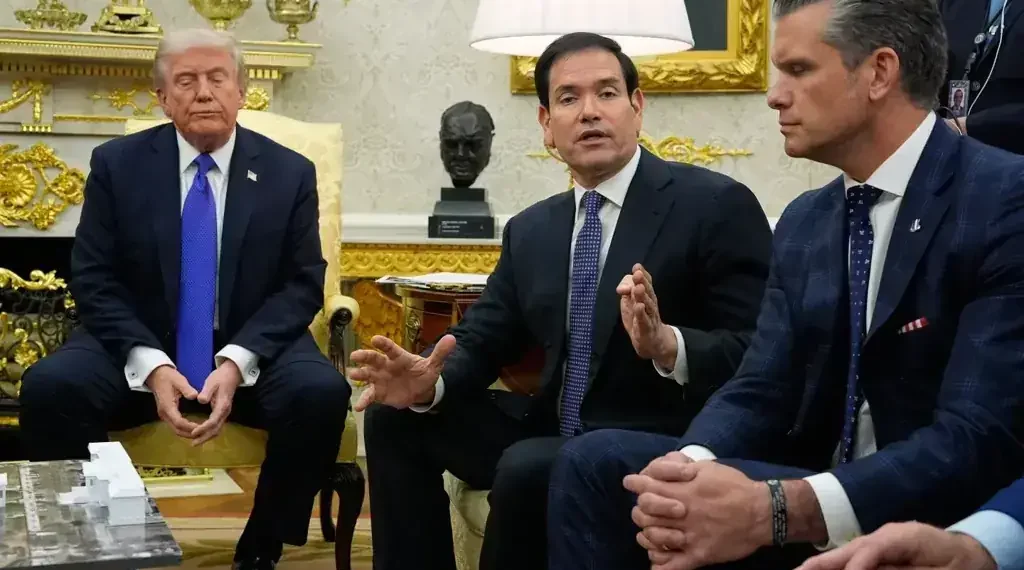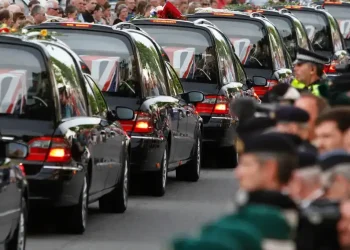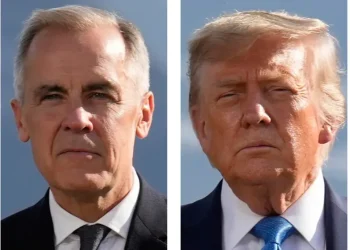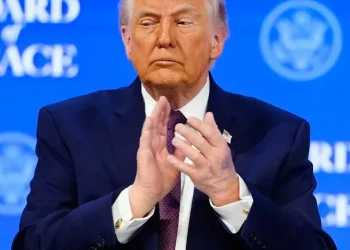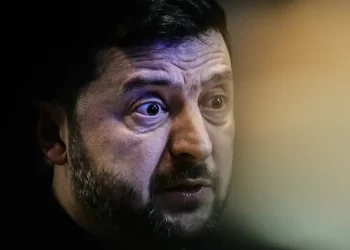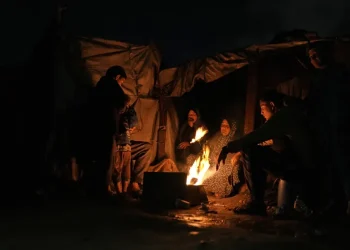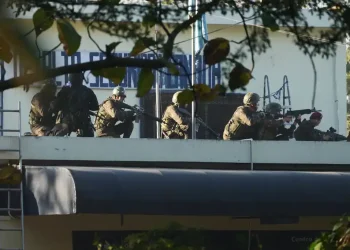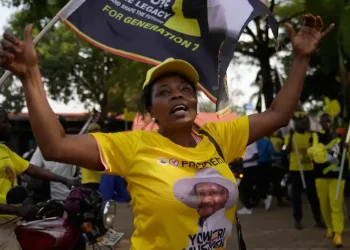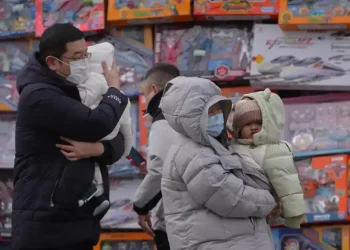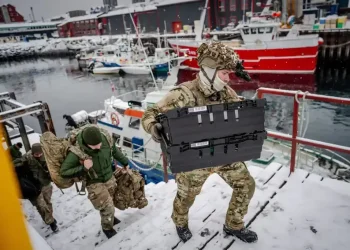U.S. Expands Anti-Drug Strikes to Pacific Waters, Killing Two in Eighth Maritime Attack
Washington broadens maritime anti-drug operations
The United States military has conducted its eighth strike against an alleged drug-smuggling vessel, this time in the eastern Pacific Ocean, killing two people, U.S. Defense Secretary Pete Hegseth announced Wednesday.
The strike, carried out late Tuesday, marks a significant expansion of the Trump administration’s campaign against transnational drug trafficking networks in South America. Previous operations had targeted boats in the Caribbean, but this is the first publicly acknowledged strike in the Pacific.
According to Hegseth, the attack brought the total death toll from the recent wave of maritime operations to at least 34 since the campaign began last month.
Shift from Caribbean to Pacific smuggling routes
The latest strike signals a geographical shift in Washington’s military operations toward the eastern Pacific, an area long identified by U.N. and U.S. drug enforcement agencies as a principal corridor for cocaine shipments from South America to North America.
Hegseth posted a short video showing the strike on social media. The footage appeared to show a small vessel carrying brown packages before it was hit and engulfed in flames. The Pentagon has not released further details on the vessel’s origin or the identities of those killed.
Defense analysts note that the Pacific corridor handles an estimated 70 percent of maritime cocaine trafficking, according to the U.N. Office on Drugs and Crime (UNODC) and the U.S. Drug Enforcement Administration (DEA). Colombia and Peru remain the world’s top producers, while Ecuador has emerged as a major transit hub in recent years.
Trump likens anti-cartel effort to war on terrorism
President Donald Trump defended the strikes, describing them as part of what he called an “armed conflict” with drug cartels operating in the Western Hemisphere. The administration has labeled cartel members as “unlawful combatants,” invoking the same legal framework used after the September 11 attacks for counterterrorism operations.
“Just as al-Qaeda waged war on our homeland, these cartels are waging war on our border and our people,” Defense Secretary Hegseth said. “There will be no refuge or forgiveness — only justice.”
Trump told reporters in the Oval Office that the operations were fully within U.S. legal authority. “We have the legal authority. We’re allowed to do that,” he said. He added that similar strikes on land could be considered in the future.
“We will hit them very hard when they come in by land,” Trump said. “We’re totally prepared to do that. And we’ll probably go back to Congress and explain exactly what we’re doing when we come to the land.”
Mixed reactions in Washington
The strikes have drawn bipartisan concern in Congress about the administration’s use of military force without explicit authorization. Several lawmakers questioned the legality of targeting suspected traffickers on the high seas without judicial oversight.
Senator Richard Blumenthal, a Democratic member of the Senate Armed Services Committee, said he was “alarmed and angry” over the lack of transparency. “Expanding the geography simply expands the lawlessness and the recklessness in the use of the American military without seeming legal or practical justification,” he said.
Republicans have largely defended the operation. Senator John Kennedy of Louisiana said he had consulted Secretary of State Marco Rubio and was satisfied with the administration’s legal review. “He believes we’re on solid ground in attacking these narcoterrorists,” Kennedy said. “I trust his judgment.”
Rubio defended the maritime strikes as a deterrent, stating, “If people want to stop seeing drug boats blow up, stop sending drugs to the United States.”
Regional context and strategic concerns
The Trump administration’s build-up of naval and aerial assets in the Caribbean and eastern Pacific has fueled speculation about broader objectives, particularly regarding Venezuela, a key transit point for cocaine shipments.
U.S. intelligence agencies have long identified Venezuela as a hub for narcotics movement toward Central America and the Caribbean. The country’s president, Nicolás Maduro, faces U.S. narcoterrorism charges filed by the Justice Department. However, no evidence has linked the latest strikes directly to Venezuelan targets.
Defense analysts say the recent expansion to the Pacific reflects operational realities rather than new political intent. The DEA estimates that as of 2024, over 70 percent of maritime cocaine seizures occurred along the Pacific routes between Colombia, Ecuador, and Central America.
Humanitarian and legal implications
Human rights observers and some former Pentagon officials have expressed concern that the strikes blur the line between counter-narcotics enforcement and wartime operations. Under international maritime law, suspected traffickers are generally subject to interdiction and arrest, not targeted attacks.
The U.S. has so far avoided prosecuting survivors of the destroyed vessels. Two survivors from earlier strikes were repatriated to Ecuador and Colombia, where authorities released them due to insufficient evidence of criminal activity.
International law experts have warned that such actions could raise legal questions under the United Nations Charter and customary law governing the use of force. The Trump administration maintains that its actions fall under self-defense and national security provisions.
Wider impact on drug policy and enforcement
The Trump administration argues that the strikes have disrupted drug flows and saved lives by curbing the supply of narcotics entering the United States. Trump said that each destroyed vessel represents “thousands of lives saved” from addiction and overdose.
However, data from the U.S. Centers for Disease Control and Prevention (CDC) show that most overdose deaths in the U.S. stem from synthetic opioids such as fentanyl, which are primarily trafficked overland through Mexico rather than by sea.
Analysts say the strikes could have limited practical impact on global supply chains but may serve as a deterrent symbol in U.S. domestic politics.
Looking ahead
The U.S. military has not disclosed how many strikes it plans to conduct or whether the campaign will continue into 2026. Pentagon officials say the operations are reviewed regularly for compliance with U.S. and international law.
As Congress continues to debate oversight of the campaign, the administration insists the measures are part of a broader strategy to confront transnational criminal networks that threaten U.S. security.
For now, Washington’s intensified operations in the Pacific mark a significant escalation in a decades-long battle against narcotics trafficking — one that continues to test the boundaries of military authority and international law.
This article was rewritten by JournosNews.com based on verified reporting from trusted sources. The content has been independently reviewed, fact-checked, and edited for accuracy, neutrality, tone, and global readability in accordance with Google News and AdSense standards.
All opinions, quotes, or statements from contributors, experts, or sourced organizations do not necessarily reflect the views of JournosNews.com. JournosNews.com maintains full editorial independence from any external funders, sponsors, or organizations.
Stay informed with JournosNews.com — your trusted source for verified global reporting and in-depth analysis. Follow us on Google News, BlueSky, and X for real-time updates.
